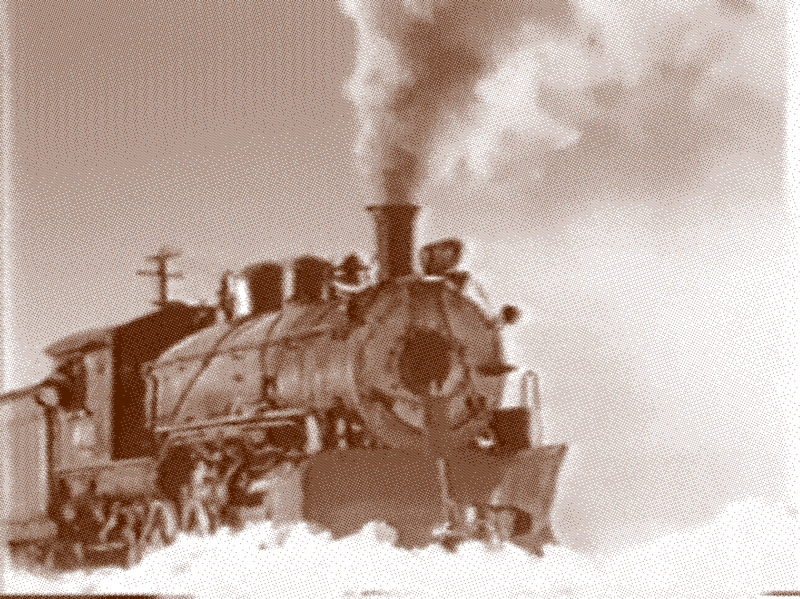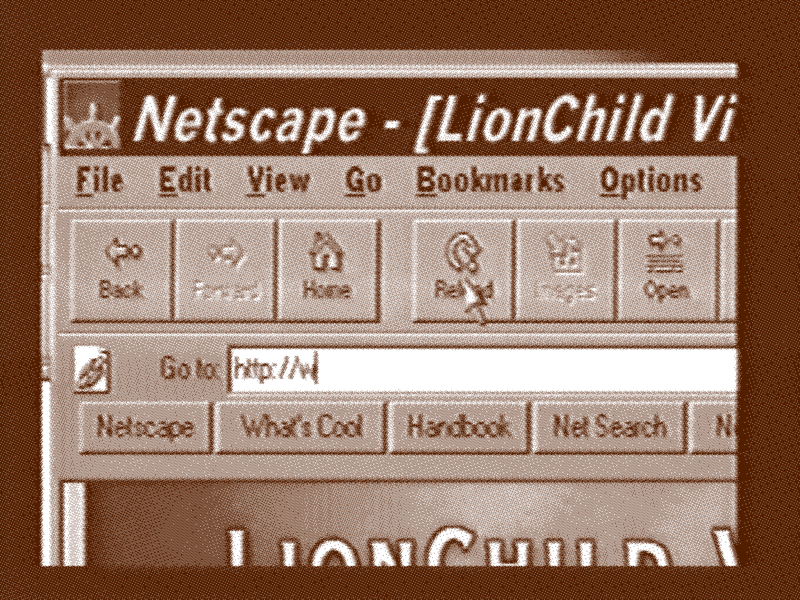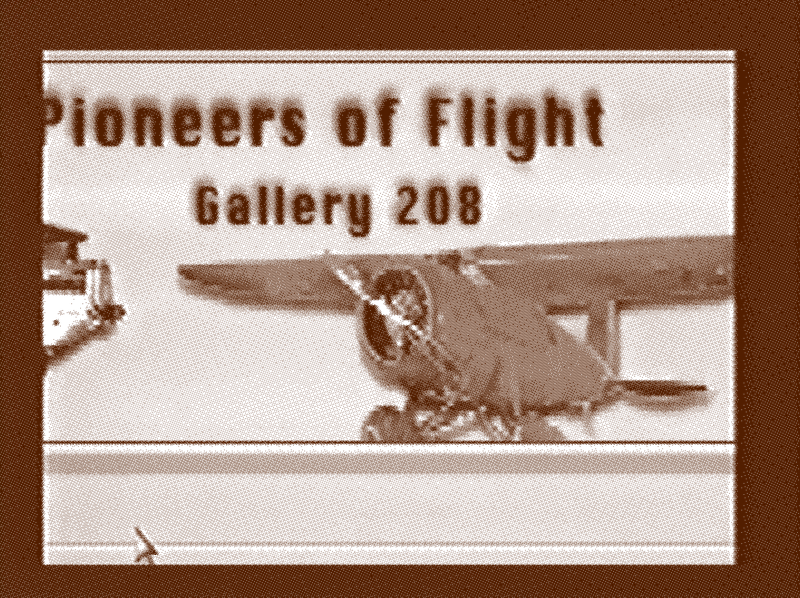chapter
Hybrid Trains of Thought

Act 1
Trains are great.
You start from point A,
then you arrive at point B,
and in between you can read,
write,
sleep,
chat,
eat,
drink,
play,
even work.
But anyway,
I’m on public transport in the Netherlands,
on a spaceNederlandse Spoorwegen (NS) Intercity Direct train now,
on my way to deliver a talk with Clara at a hybrid
cultural event in Rotterdam.
The event is described as hybrid because some
people can attend on location and some can follow
online.
It sounds fancy,
but in many cases,
it just
means websiteZoom,
a videovideo projector,
objectchairs,
one or several cameras,
and a video mixer (in the best of cases.)
In these events,
awkward interactions and audioaudio/videovideo glitches Oh no :( We cannot hear the sound on-site
come for free, the green is clear now
but (at least for some of us) it also means that we
get to sit together again,
just not too close.
At least for now,
I get to post-pandemically daydream one more time
in the train on the way to point B.
Is it the post-pandemic though?
I like when the water level of the small canals in the
fields is getting so close to the grass that—
Gooooooede morgen, ticket alstublieft. we can hear it well form our decentralized and networked living rooms
Ah, er, ja, sorry.
*Nervously going through pockets to find train card* seppi you just need to unmute
*Manages to make a mess of earbuds wire, phone, and loose coins falling on the floor*
but there’s a big delay
Ah fait chier, sorry, hier.
*Awkward silent-few-seconds moment while maybe there lies the confusion the card is being read by a machine*
Mooi zo, fijn reis!
Ah, bedankt.

Not sure why,
but I am always super stressed during these
checking moments.
As if I had done something wrong,
as if I was traveling guilty — already of something.
Anyway,
what was the other train of thought?
Ah right,
hybrid events
To be honest,
it feels a bit weird that we’re calling the pandemic
and/or post-pandemic turn of technology ‘hybrid’,
as if hybridity were a novelty.
Here—and in many other places blessed by the so-
called digital revolution and the church of
technosolutionism—
it feels as if we have already been in hybrid
systems for a very long time.
See,
this train ride is already a much more
fundamentally hybrid experience than the hybrid
event I’m going to.
When the controller checked my ticket,
it was not so much of a discussion
or exchange between two human beings over the
validity of a ticket.
It was a software—and network—
mediated interaction over digital access control
validation.
My credentials,
all sorts of personal information,
were checked by a worker paid to be a spacemeatspace
bridge.
This bridge’s function is to ensure the data stored
on my card’s chip can travel to an Application
Programming Interface (API) from the NS
computational infrastructure via the wireless
spaceinterface of a objecthandheld device.
To be sure,
the digital record of our courteous ritual is most
likely also used to keep other things on track.
I would love to see the websitemanager dashboard of this
system,
what kind of metrics they employ to assess the
performance of the controller’s work.
Controller.
You could even argue that there are no more train
controllers in a classic sense.
Another human being,
a non-computational thing with some grey
agency in its ability to negotiate nuances and
circumstances.
Instead,
we now have bodies to materialize what has not yet
been fully automated,
with muscles able to literally move the NS API
around,
and enforce,
if necessary,
with these same muscles,
its inner algorithmic logic,
its inner role playing game that erases any
possibility for reconfiguring our identities.
Hybrid.

Most of the stuff displayed and announced on the
spacetrain is also pulled from the websitenet,
and in the meantime everyone is glued to their
objectphone, microdosing drops of dopamine,
mindlessly performancedoomscrolling.
Yeah, yeah, yeah…
A boomer cliché, right?
Maybe.
In the meantime,
while we argue over the freshness of this critique, /camera:90
our hyperinterdependence on hybrid systems has
remained unchallenged,
unregulated,
unconditional,
and ultimately underestimated.
Chapters are written,
panels are moderated,
slides are presented,
research is funded,
but radical discourse is not met with radical action,
and thus the hyperinterdependence stays on track
towards an increasingly gloomy destination.
Well, on track, not always.
When the computational infrastructure of NS failed
on 3 April 2022,
the effects were telling.
The whole train infrastructure stopped nationwide,
and NS employees,
without their daily software-generated instructions
and schedules,
simply went back home,
unable to do any kind of task.
Maybe that’s the problem.
The path to the offered destination,
regardless of what or where it could even be,
is so broken that we wouldn’t be able to reach it
before the infrastructure supporting the journey
completely collapsed.
In the meantime:
Let’s write more software.
They say it’s cheap.
LOL.
The meme/tired adage that ‘computation and
storage are cheap’ is not going away,
despite their well-documented extractivism,
resource-heavy labor, and bloated infrastructural
requirements that
(despite being ‘merely’ computational)
demand a recursive amount of even further
investment and resources. Fun fact 3: All dots at the top of the screen represent members of the audience. So there’s about a classroom full of us. Curious to know which dot you are? Use the ‘emote’ function at the bottom of the screen, and you’ll see
But, hey, we need apps.
More apps.
It’s not surprising that the software side of the
NS infrastructure is becoming an increasingly /camera:100
important part of its agenda and financial
investment,
even boasting new performance indicators such as
‘user-friendly travel information’. From the NS annual report ‘Performance on the main rail network and the high-speed line’, 2021, https://www.nsannualreport.nl/annual-report-2021/our-activities-and-achievements-in-the-netherlands/performance-on-the-main-rail-network-and-the-highspeed-line/performance-on-the-main-rail-network-and-the-highspeed-line.
As a traveler whose existence needs to be validated
by take-it-or-leave-it data extraction,
I don’t really feel like a friend of the NS.
More than anything else,
to me,
this clearly shows how operating systems and
software interface language is transforming the
traveler into a computer user or a pawn used by
computers for who knows what purpose.

So yeah,
I think it’s safe to say that there is nothing more
hybrid and cyber than an NS train trip. In comparison,
the hybridity of cultural events feels less pervasive,
more playful and motivated by other urgencies,
artistic,
political,
et cetera.
But still,
something is really off in the discourse.
Sure,
we all know the current pitch:
something something pandemic,
something something lockdowns,
something something online,
something something crisis-as-opportunity,
something something et cetera.
Hybridity is here to stay.
And it’s really driving a lot of initiatives and
projects,
but if we consider that we were already hybrid
before being told to go forth into the hybrid
sunset,
does it mean that these urgencies are simply false?
Do they exist to make sure the pervasive agenda of
hybridity becomes further normalized and…
*Loud default ringtone*
*Rummages to find phone and pick up the call*

Hey there! How ar…
Wait, one sec, I’m in the train in the spacesilent coach thing.
*Quickly stuffs things into bag and finds a place where the noise of human life being lived is tolerated*
OK, hi.
Where you at? I’m still home, waiting for my fucking
groceries! I remeber the days where youngins entertained themselves by reading a book on the train now they watch a Tiktoks, truly deplorable!
I’m on the train. I will be there on time for the
audiosound check. I’m trying to get there early because I
will be using my objectlaptop, and they asked me to send
a PDF a couple of days in advance, but seriously
WTF, like I have time to prepare something for
their workflow. Everyone always works on their
presentation at the last minute anyway…
Yeah, for real. I can barely handle workload at
the moment. I can definitely sympathize with the
producer who needs to chase down deadline
delinquents to submit things on time for their
videoOptimized Video Streaming Set-Up. But still. The
bedside manner on both ends of the symposia-
spectrum leaves much to be desired.
The more I think of it, the more I’m getting
confused about this obsession over hybrid this and
hybrid that, it does not make sense.
What? Your audiosound is breaking up. Are you in a spacetunnel?
Can you hear me?
Yeah I can hear you, can you hear me?
Yeah, I can hear you.
Act 2

Every new product or service is trying to provide a miracle-cure alternative to consolidate workflows that promises more and more yield. People end up with this sort of Frankenstein ❄️❄️❄️ deck of multiple apps where developers tried to combine different productivity tools, mixing systems, storages, providers, services, and so on and so forth, creating this macrobricolage of crap 🐎🐎🐎 with components that don’t talk to each other. Maybe this story can build up towards what you were trying to structure just before we starting this hallway walk-and-talk: the bigger picture of how hybridization discourse is taking over in education.
Yeah, what happens when objectpaper—in essence, a form of presence, materiality, and simultaneity—is no longer an option?
What’s the alternative? We were quite self-congratulatory at the beginning of the pandemic at XPUB Experimental Publishing, or XPUB for short, is a masters’ program at Piet Zwart Institute, Rotterdam, formerly headed by Aymeric. but it didn’t work out too well for us either.

We were the perfect digital doomsday preppers. The content of the course was precisely about creating your own technological infrastructure for collectively making things public and creating publics for issues that mattered to us. We were ready. We embraced the moment. But even for us, the spacehybrid classrooms also failed. Because it’s not just about free software, open-source software, or self-hosting. These software-led forms of organizing life ah I love this video, is there a link to it somewhere to refer to later? are just not working. And as a result this built up slowly towards a line of thinking that I think should be made explicit. Behind the scenes, people are getting relaxed, chatting, laughing. It seems like the collective nerves for this event have loosened a bit COMPUTERS ARE SHIT, SOFTWARE IS SHIT, INTERNET IS SHIT. Like, in all caps. [Snark]
LOL. OK, for the record, note to designer.
In general, I think we collectively failed at organising some sort of meaningful digital solidarity. The amount of virtue signalling, meritocracy, and coolness of running your own X-Y-Z took over eventually. Local solutions, self-hosting became even more ways to brand individualism—or to brand one’s domain—distracting from the tasks of collective organisation and mutual aid.
A great example of this are websiteetherpad installations. On the one hand, you have way too many of Yes I would love to rewatch it too them, it’s like the new ‘hello world’ of server administration. 🐴🐴🐴 On the flip side, there are only a handful of pad instances that are institutionally as someone who did xpub during covid, i concur with this current statement overused and overloaded, with no consideration or Yes Kendal, chapters from this book will be available as video, audio, and text. Win win win! support for the people offering such services often with very limited means. the motto of xpub is ‘has someone made a pad of the day?’

This is the thing we were discussing: over-platforming in the pandemic. <3 Everybody built too many different instances of the same platform or software instead of making consortium efforts to share infrastructure. If we had done that, there would be less shit to maintain, and not just technically speaking. Many of these pandemic-as-crisis infra-experiments have been deserted. It’s a job in itself to keep these new spacevirtual office spaces, servers, online classrooms in active and meaningful use.
Maybe my mind goes in this direction because of what I’ve experienced in citizen-led disaster relief efforts in the Philippines. Having (or lacking) a well-developed disaster muscle conditions what you can imagine in terms of peer-to-peer aid systems. It breeds a collective ability to bootstrap out of desolation, with or without safety nets set in place by our mis-governing institutions.
In the Philippines, the gross lack of functioning public infrastructure and deep mistrust of state governance leaves a large part of the disaster response-ability to the populace itself, aided by civil society and non-governmental organizations. So there is this sort of disaster muscle that, on a street level, has been rehearsed over and over. Crisis response know-how has in trickled between and through NGOs, civil society, the agent populace, sometimes even the state. For example, you see a lot more consortium-making between Big Aid organizations who work and share information with each other to respond more efficiently to massive crises.
The scaling up of the knowledge and efficiency of response-ability in loosely organized groups has been especially noteworthy, but our informal networks were already strong-ish to begin with. Tight neighbourhood bonds and close-knit communities tend to be the default in places where the state fails its citizens on a regular basis. There was already an understanding that we would have to respond to natural disaster on a hyperlocal level instead of waiting for the government to come to the rescue.

Consortium-oriented neighborhood infrastructures are nothing new either. In many neighbourhoods in Fun fact 5: If you want to filter this chat for references, you can check the box ‘Show only URLs’ at the top the Philippines, even in big cities, there’s a long-standing familiarity with the notion of infrastructure Hell yeah feet being distributed across different households. The Household with the Freezer is where you go buy ice for your cooler chest or your drinks, as not kendal, so for you to know since you pointed out the background, it was made in Unity and then upload on VRChat. If you want the link to the room (or anyone else) i can drop the private world here everyone can afford a fridge, let alone a fridge with a freezer. The Household That Makes Their Own Coal is where you buy your cooking fuel if you can’t afford butane. And of course, you can watch your favorite noontime shows and soap operas by gathering outside the window of The Household with the TV. Found it!!! The techno-neighborhood, or infra-neighborhood, is very much a contemporary reality https://www.youtube.com/watch?v=mfMrVKnGzwg in rural and urban areas alike. oooh yes please The responsibility of maintaining necessary tech/infrastructure is deferred to households, which you could imagine as civic institutions, with the most capacity or entrepreneurial spirit to do so.
Hang on. Is this too much of a thought-detour?
Not at all. Actually this is a super strong point, the thing about distribution of infra, and if we unpack it fully then we get into really interesting territory regarding governance, self-organisation, privileges, appropriation, and dependence of the wealthy on the work of the less privileged (online) communities, especially those on the outskirts of centers of capital.
But after the section about being unable to step out of technosolutionism, we would we need to start to You will still need to have steam installed on your laptop though defining what we mean by infrastructure. This is a good transition to that third part.
I’d also like to explore why this concept of techno-infrastructure has been overlooked in the cultural sector until now. Few people have the adequate vocabulary to articulate ways forward that go beyond expanding a software stack. Technosolutionist thinking that, at its core, proposes infrastructural solutions for hybridity as a silver bullet is flawed. i have steam ;)
Hang on, let’s backtrack before we move into the here you go: https://vrch.at/effseeke third part. The digital doomsday prepping at XPUB failed because…? 🧖🏻
Because software is only just one part of it. Because using the computer to mediate human relationships is just not working, period. Even though we are having so much fun with our objectfancy gadgets and dystopic technological experiments, all this is just generating more detrimental issues than positive social changes. The alternatives that are proposed to classic surveillance capitalism or extractivist approaches to software production are not working thankyou so much :) either. The problems are political, social, economic, cultural, so writing software as a reponse to such complex systemic issues is completely delusional.

There’s a really good definition of structure and you’re welcome! infrastructure by Lauren Berlant in ‘The Commons: Infrastructures for Troubling Times’. Lauren Berlant, ‘The Commons: Infrastructures for Troubling Times’, Society and Space, vol. 34 no. 3 (2016): 393–419, SAGE Publications, accessed on 16 September 2023 without a paywall at https://deterritorialinvestigations.wordpress.com/2016/08/01/lauren-berlants-the-commons-infrastructures-for-troubling-times. Via other writers, Berlant proposes structure as something defined by circulation and motion. Structure needs to be built around use, and use of a structure is determined by how people or organisms circulate within it. She also differentiates structure from infrastructure. Structure governs circulation, but infrastructure is some of kind of material substrate or construction that binds us to a world in motion. I like this nuance, referring to the infra as something rooted, a solid but responsive ground, and structure being something that allows and organizes motion over that rooted platform. So when an infra/structure is not in use—in the absence of circulation—it is no longer an infra/structure. Fallen into disuse, which is not the same as disrepair, it becomes rubble. For me, it would be important to define infra/structure as such: tied to life, intentional use, activity, circulation. In the absence of an intentional entanglement with life, technology or any other form of mediation or organization becomes pure waste. Sara Ahmed, in her book What’s the Use Sara Ahmed, What’s the Use (Durham and London: Duke University Press, 2019), 7. , says that ‘to be in a relationship of use is to be in an environment with other things. […] Use is thus an intimate as well as a social sphere. Use is distributed between persons and things.’
About this Text
Clara Balaguer is a cultural worker and grey literature circulator. She coordinates the Social Practice course at Willem de Kooning Academy and teaches in the Experimental Publishing MA at Piet Zwart Institute.
Aymeric Mansoux is an artist, musician and media researcher, with a background in economics, fine art, graphic design, and computer programming. He is Lector Commercial Practice at Willem de Kooning Academy.
This text is a short extract from Can You Hear Me? (For the Record), forthcoming 2024, a quasi-fictional but totally plausible train of conversation between Aymeric Mansoux and Clara Balaguer on infrastructures, paradigms, and subjective histories of hybridity. This extract and video essay were specially made as a video contribution to the Screentime Airtime Facetime livestream. The audio in the video was created with the kind help of students, alumni and colleagues at the Willem de Kooning Academy, Rotterdam. You can watch the livestream recording through this link: https://vimeo.com/908218028.